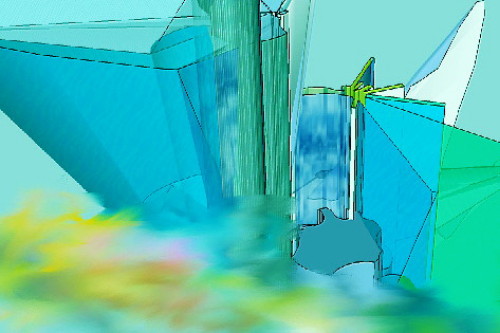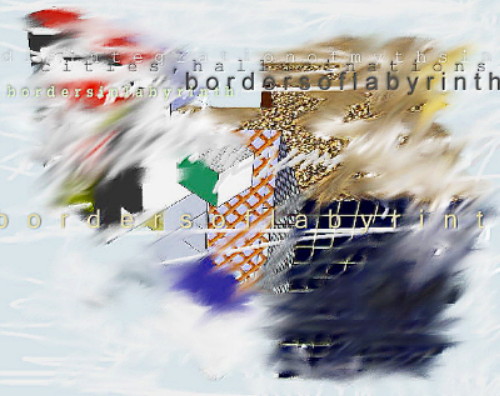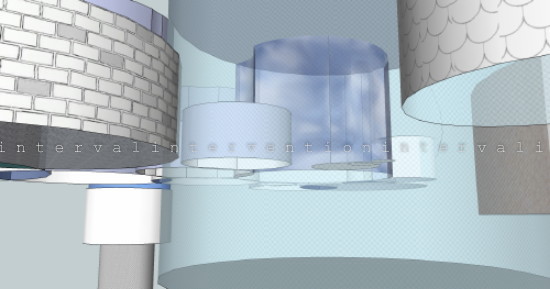I am on the left-turn pocket, about to make a left. The wait hair-splits seconds to infinity, a very physical experience of eternity on a street-intersection, the kind in which your life feels trapped, and there is only one direction, there, into the abyss of the left, into its freedoms, chaos. I see faces in the cars, on the other direction, faces of pursuit, aggression, those who’d confess their day in frantic phone calls later, unnecessary calls they have to make just to have someone to talk to, to feel linked, networked. They are wearing sunglasses, as though to leave the sun out of their directions, ignore its illuminations, consider them distractions, nuisance. I am in the intersection of 5:00pm and 5:01pm, the intersection of life as abstract and life as material, bad decisions and worst decisions, fiction and non-fiction, poetry and reality. In a moment, I could crash, collide into another dream in the making, a city official, a president of a porn-company, a thief trying to be the best thief in the world, or a horny man having phone sex on his cell-phone. My life is on the line, and there are no lines to read in-between those lines. Am I in someone’s surveillance camera? Am I in a movie-production set? I make the sign of the cross. Soon, I let that sign fade to insignificance, to the shadows of other crosses I’ve made before. The light is green, is yellow, is red, the color of anything, an empty sign, emptied of sunsets, death, crime, failure, genesis of ironies, the erotics of daily life, birth, or as myth before flights to nowhere.
Transported
In Los Angeles on April 3, 2010 at 1:18 pmNight lights can be comforting, while driving home from work. They give you a glow inside, shades and saturations of neon in salty fast-food, dripping greasy welcome to another phase in your day-night convergences. You don’t want to drive fast, because you don’t really want to go home yet. You pretend you are homeless, wandering, on the road, at home in anything intangible. You think about buying groceries, putting gas in your car, or stop by a convenience store for a cup of coffee. The options are laid out before you, ready to be ignored. You keep driving into what you’re about to think or do spontaneously.
You don’t take the freeway this time, but a longer route, through a road that winds downhill. Again, there’s music in your car, but its volume isn’t too loud. Traffic lights appear between long intervals on that road. You don’t want to stop on a red light, and so you press on your gas the way you press in what can be. On your rear-view mirror, you see cars, and feel the shadows in your thoughts. Soon, you will tailgate someone yourself, who will get annoyed and slow down a bit.
Trees along the road uniform to colors of denied expectations, the color of shadows, silhouettes. You’ve opened your window a bit for some air. You glance at the time on your dashboard, still early for anything related to rest. You can feel the speed of your car. But the feeling doesn’t have anything to do with adrenaline, maybe boredom, or that thing about driving that moves your body while not necessarily moving your body, that sweet sensation of being transported somewhere, into the rippling haloes of invisible moonlights.
Outlines Without Silhouettes
In Los Angeles on April 3, 2010 at 12:56 pm
The sun is 4pm, slowly setting, finishing Sunday. I am 75mph on the freeway, maybe more. Others are flying at 80mph and up. I feel like catching up to them, but hover my speed below the 80s, like it’s cooler to be there, the way some people hate leaving the 70s or the Age of Disco. Lenny Kravitz spits cool through my speakers, makes them high. I play one of his tunes, a few times, because of its beat, and the way it gives the afternoon some rhythm. Forest Lawn Drive is my next exit, after making a last minute decision to visit two loved ones, buried beside each other. I am now rock-and-rolling towards a field of death-beds. Beside the road are flower vendors who cause attentions of rushing drivers to crash into them.
I decide to leave out flowers on this visit. There are already flowers beside the tombstones; they look fresh, from someone’s recent visit. I assume that recent visitor has cleaned the stones carefully, because dirt and soil are not stuck around the letters and numbers on the stones. Goaded by vague superstition, I make some numerical calculations on the number of letters and numbers on the stones, to come up with numerical similarities, to force out mysteries from the results. Some cemetery visitors around or near me must have thought I was deep in prayer, because of my posture, and the suggestion of concentration it conveyed.
Cold breezes remind me what I needed to do that night. I do not stay long there. I should’ve said a prayer. But I do not know what I would’ve said. I think it is better to visit the dead when one is at home, drinking coffee, staring at the sky outside, at a wall, while on a traffic jam, browsing through photo albums, or in one’s writing, in an essay, story, or poem. Visiting someone’s grave is depressing, is affirming not only the dead-ness of dead bodies one used to know but their souls as well, like they’re not part of you now, and, therefore, must warrant a ‘physical’ visit to pull them back to your memory. Whenever I see those stones, I see memories named in stone. I go back there, over and over again, as though trying to reclaim something on each visit.



